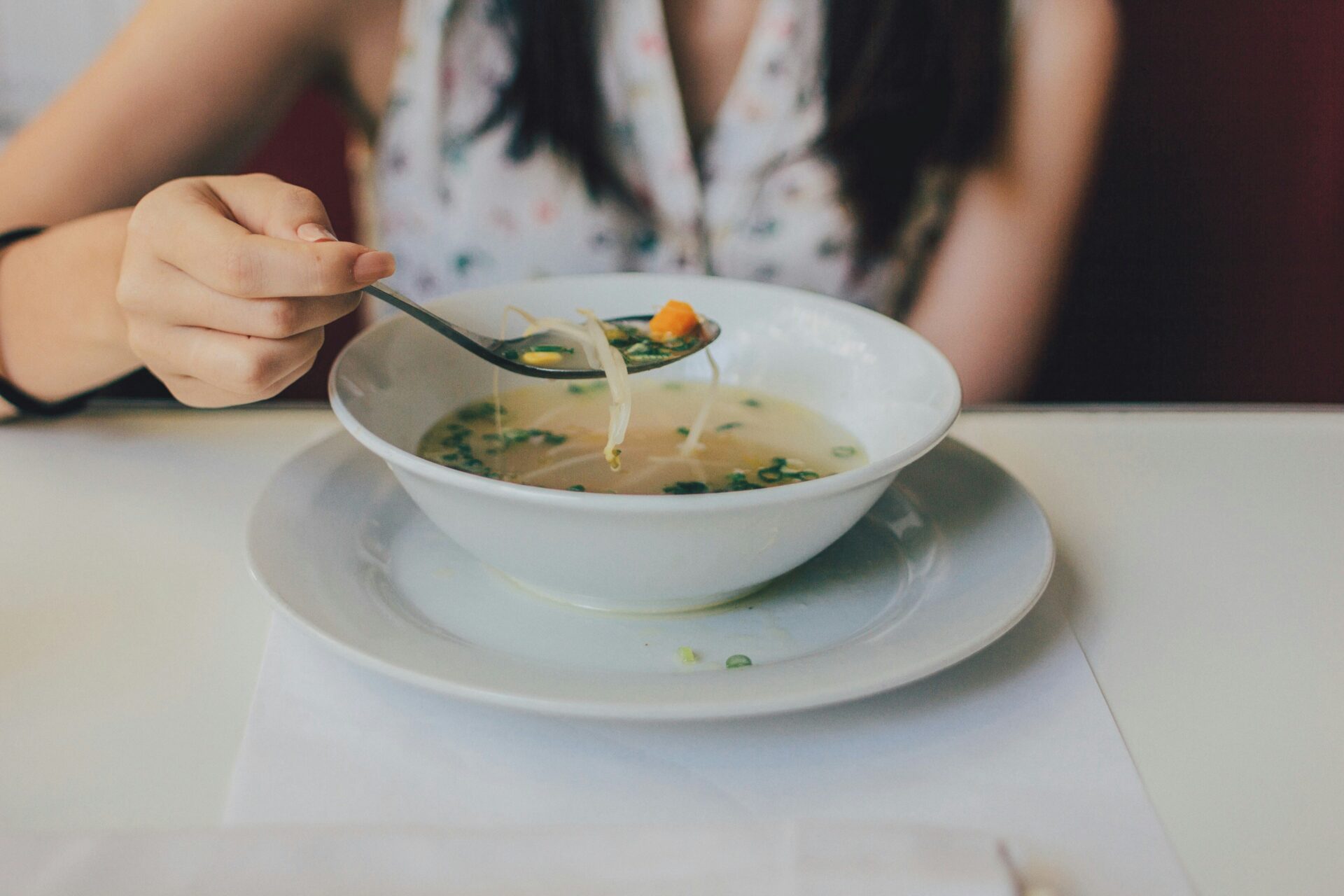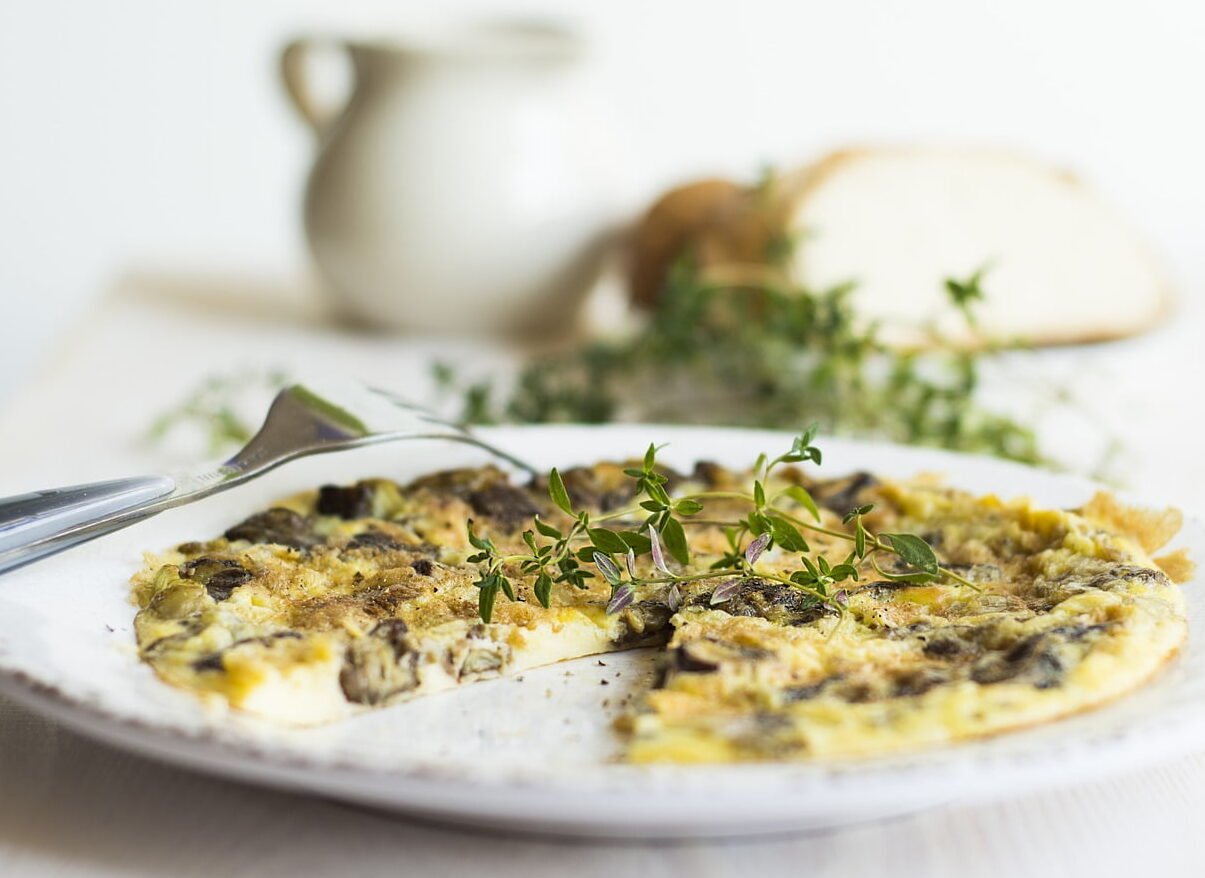Finding out you’re pregnant is one of the most joyous moments in your life. It starts an incredible journey filled with milestones, preparation, and learning. Among the many changes pregnancy brings, nutrition is one area where you’ll notice a significant shift. You are now eating for two (kind of), and the choices you make can have a lifelong impact on the health of your baby. But don’t stress – with some guidance, eating well during your pregnancy is straightforward. Here’s how to nourish your body and your baby for a healthy mummy pregnancy.

Essential Nutrients You Need During Pregnancy
During pregnancy, you need many different nutrients. Your body is hard at work creating new life, and the demands on your vitamins, minerals, and macronutrient intake increase dramatically. Let’s look at a few chief nutrients that are required in ample amounts to support the healthy development of your growing baby.
Brain Health: Folate, Choline, Iodine & DHA
Folate
Folate stands out as a critical prenatal nutrient due to its direct role in reducing the risk of neural tube defects, such as Spina Bifida and other neurological conditions. Adequate intake of this B vitamin before and during early pregnancy is essential as it significantly aids in the proper formation and closure of the neural tube, which occurs within the first few weeks of your pregnancy (often before when many women realise they’re pregnant). The best food sources of folate are leafy green vegetables, nuts, seeds, legumes and pulses.
Choline
This nutrient is not as well known as folate, yet it is just as vital for the healthy development of your baby’s brain and nervous system. Choline helps form the phospholipid layer within cell membranes, integral to intracellular communication. It is also important for the formation of acetylcholine, a neurotransmitter that aids in memory and learning. If you’re pregnant, you should consider including plenty of choline-rich foods in your diet. Rich sources of choline include eggs, brassica vegetables, red meat, peanuts and dairy products.
Iodine
Iodine is another critical nutrient during pregnancy, which is fundamental for proper thyroid function. Your thyroid helps with all life stages of growth and development. Understandably, pregnancy is one of the most intense times of rapid growth as you meet your baby’s high nutrient needs. If you want to increase your natural iodine intake, cooked seafood, dairy products, eggs and seaweed are all great sources of iodine.
DHA
Docosahexaenoic acid (DHA) is an omega-3 fatty acid that plays a vital role in the growth and formation of your baby’s brain and retina during pregnancy. Getting enough DHA ensures your baby’s proper brain development and function. DHA continues to be important throughout breastfeeding as well. Generally, the consumption of omega-3 fats during pregnancy has demonstrated a preventative role in developing atopic conditions: allergies, asthma and eczema. DHA is abundant in fatty fish like salmon, salmon roe, chia seeds, flaxseeds, walnuts, sunflower seeds, and pecans.
Growth & Immune Health: Vitamin D, Iron & Zinc
Vitamin D
Vitamin D is imperative for bone health, metabolism and immune health for you and your growing baby. Vitamin D regulates many different hormones in the body and brain. Food sources of vitamin D include salmon, sardines, and eggs, but getting plenty of sun exposure is the best natural way to boost your vitamin D levels.
Iron
Iron is a crucial prenatal nutrient, primarily because it plays a vital role in forming haemoglobin, the protein in red blood cells responsible for transporting oxygen throughout the body. During pregnancy, your blood volume increases dramatically to support your growing baby, thereby increasing the demand for iron. Adequate iron levels ensure that you both receive enough oxygen, which helps prevent conditions such as low birth weight and premature delivery. Iron-rich foods like liver, red meats, beans, spinach and leafy greens are fundamental components of a prenatal diet.
Zinc
Zinc is an essential mineral for many cellular processes, including DNA synthesis, immune health, cellular division, and protein production. The need for zinc becomes even more significant during pregnancy as it plays a critical role in your baby’s healthy growth and development. Therefore, incorporating zinc-rich foods like meat, poultry, dairy, seafood, sunflower seeds, chickpeas and almonds into your daily prenatal diet is incredibly valuable.
The Zinc Spark: A Flash of Life at Conception
The “zinc spark” is a fascinating phenomenon observed at the moment of conception, when a sperm fertilises an egg. Researchers have discovered that the egg releases millions of zinc ions at this critical juncture, resulting in a brief but brilliant flash. This spark is not only a marker of successful fertilisation but is also crucial for the early stages of embryonic development. This zinc surge is believed to activate metabolic pathways that prepare the egg for its transformation into a fully formed embryo. The zinc spark is a testament to the significance of this mineral, even from the earliest moment of life.
The Main Macros: Protein, Carbs, Fats, and Fibre

The Power of Protein
In order to ensure a healthy mummy pregnancy, protein is the building block of growth, a nutrient your body needs more of during pregnancy. It helps to repair cells and make new ones, supporting your baby’s growth.
Organ Meats & Slow Cooked Meals
Including organ meats like liver and heart in your diet can provide a wealth of nutrients, including protein, vitamin B12, iron and folate. Slow-cooked meals using bone broth are also excellent sources of highly bioavailable collagen and minerals you and your baby need.
Plant-Based Protein Options
Plant-based protein options such as legumes, organic tofu, and tempeh are great for vegetarians or vegan mummies-to-be. These foods also provide fibre, vitamins, and minerals essential for a healthy mummy pregnancy!
Carbohydrates and Dietary Fibre: Your Energy and Digestive Buddies
It’s hard work growing new life! With this increase in energy comes an increase in the need for complex carbohydrates. Whole-grain carbohydrates that keep you feeling full and provide a steady energy supply without causing a blood sugar crash are your best bet. Soluble and insoluble fibre, found in fruits, vegetables, and whole grains, helps with digestion and can prevent constipation – great for pregnant mummas!
Hydration: Water Intake For You and Your Baby
Staying well-hydrated is essential for everyone, but particularly for pregnant women.
How Much Water Do You Need During Pregnancy?
You should aim to drink about 8-10 cups of water daily. This might equate to 1.5-2L for an average adult woman. However, this amount can vary based on factors such as climate and activity level. Listen to your body’s thirst cues. And yes, this also means there’ll be frequent bathroom visits! It’s all part of the fun!
Creative Ways To Stay Hydrated While Pregnant
Staying hydrated during your pregnancy doesn’t have to be a chore. Here are five fresh and nutritious ways to ensure you’re getting enough fluids:
- Fruit-Infused Water: Add a splash of flavour to your water by infusing it with fruits like strawberries, lemons, or cucumber. This not only enhances the taste but also adds a few extra nutrients.
- Herbal Tea Jugs: Brew a pot of your favourite caffeine-free herbal tea, let it cool, and then pour it over ice for a refreshing and hydrating drink.
- Smoothie Magic: Combine a mix of fresh fruits, leafy greens, and water or coconut water to make a hydrating smoothie packed with vitamins.
- Soups and Broths: Enjoy a mug of homemade vegetable soups or bone broths that are both hydrating and nourishing, especially when you need a savoury alternative.
- Coconut Water Ice Blocks: Freeze coconut water with bits of fruit to create hydrating icy treats that will help you cool down and stay hydrated.
Meal Planning To Make Life Easy
A little planning goes a long way in maintaining a healthy diet during pregnancy. Your future self will thank you! Better still, enlist the help of family and friends to make ahead a few meals and stash them in the freezer for you.
Making Healthy Choices Easier
Stock your kitchen with healthy, easy-to-prepare foods. Having a variety of fruits, vegetables, and protein sources on hand makes it more likely you’ll choose these nutritious options.
Preparing Larger Batches and Storing Meals
Cooking in large batches can save you time and prevent you from choosing less healthy foods when you’re too tired to cook. Slow-cooker dinners, one-pot meals and nourishing soups are some of the best and most nutritious foods to enjoy while pregnant.
Keep It Simple and Balanced
If you’re pregnant, you don’t need to complicate things for yourself by preparing meals with a thousand ingredients. Instead, stick to simple, balanced meals with a mix of complex carbs, protein and healthy fats.
When preparing food for yourself, my mantra for pregnant mothers is this:
- Something building (protein)
- Something filling (fats/complex carbs)
- Something fresh (salads or fruit)
Managing Pregnancy Cravings

It’s normal to experience cravings during pregnancy, but it’s important to make healthy choices when indulging them.
Understanding Your Cravings
Hormonal changes or a nutrient deficiency can contribute to food cravings while you’re expecting a baby. Sometimes, cravings are driven by emotional changes that accompany growing a little human! Whatever is causing these cravings, try to identify what your body is truly craving and find a healthy way to nourish yourself.
Healthy Alternatives for Common Pregnancy Cravings
Sweet Craving Alternatives
Instead of reaching for sugary treats, try some of these healthier sweet options:
- Fruit Salad with a Drizzle of Honey: Combine your favourite fruits in a bowl and drizzle with a touch of honey for a natural sweet fix.
- Greek Yoghurt with Berries and Nuts: Enjoy a creamy Greek yoghurt topped with fresh berries and a sprinkle of nuts for added texture and nutrients.
- Dark Chocolate Covered Almonds: Satisfy your chocolate craving with almonds dipped in dark chocolate, which contains healthy fats and antioxidants.
- Homemade Oat Cookies: Make oat cookies with natural sweeteners like ripe bananas or applesauce.
- Dates and Peanut Butter: Fill a handful of pitted dates with a schmear of peanut butter for a deliciously sweet and protein-filled snack.
Salty Craving Alternatives
For salty cravings, go for some of these savoury ideas instead:
- Natural Popcorn: Season it with a sprinkle of nutritional yeast or your favourite herbs and spices for a quick and crunchy snack.
- Veggie Sticks with Hummus: Slice raw vegetables like carrots, celery, and capsicum and dip them in creamy hummus for a nutrient-dense option.
- Roasted Chickpeas: Toss chickpeas with a bit of olive oil and your choice of spices, then roast them until crispy for a protein-packed treat.
- Whole Grain Crackers with Avocado: Spread ripe avocado on whole grain crackers and sprinkle with a dash of sea salt and lime juice for a satisfying snack.
- Baked Nori Sheets: Cut nori sheets into strips and bake in the oven until crispy for a healthy alternative to potato chips.
What Foods To Avoid During Pregnancy
During pregnancy, it’s crucial to avoid certain foods and beverages to protect the health of you and your developing baby. Foods to steer clear of include:
- Unpasteurised cheese and dairy products can contain harmful bacteria like listeria.
- Raw or undercooked meats, poultry, eggs, and fish should also be avoided due to the risk of food poisoning.
- Fish with high levels of mercury, such as swordfish and mackerel, should be eaten cautiously or eliminated from the diet. Heavy metals can cause an array of neurological conditions in your unborn baby.
- Caffeine should be limited to just one standard cup per day. Caffeine easily crosses the placenta and can lead to reduced growth and increased risk of low birth weight.
- Abstaining from alcohol is essential, as it can result in foetal alcohol syndrome and cause neurodevelopmental problems in your unborn baby.
The Long-Term Benefits of a Healthy Pregnancy Diet

While your pregnancy only lasts a short while, the choices you make now can have long-lasting effects on the health of your little one.
Setting the Stage for Healthy Habits
How you eat during pregnancy can set the stage for lifelong healthy eating habits for you and your child. Studies have shown that children of mothers who follow a healthy diet during pregnancy are more likely to make healthier food choices themselves later in life.
Reducing the Risk of Complications
A balanced and nutritious diet during your pregnancy can also reduce the risk of complications such as gestational diabetes, preterm labour, and preeclampsia. Enjoying a mix of healthy foods throughout each trimester can promote better birth outcomes for you and your baby.
Postpartum Benefits
The benefits of a healthy pregnancy diet don’t end with childbirth. Eating well during your pregnancy can also support your postpartum recovery and the fourth trimester with your newborn baby. Ensuring you’re replete with all the essential nutrients and nourishing foods you need helps establish a healthy (and, importantly, slow) recovery process.
Healthy Mummy Pregnancy: The Birth of a Love for Nutrition
By embracing a healthy diet during pregnancy, you are ensuring the well-being of yourself and your baby and laying the foundation for long-term health benefits. You’re also establishing a healthy relationship with food based on love, care and nourishment. Setting the tone now will help make things easier when life gets busy with a newborn baby.
If you’re feeling stuck and want extra support, a qualified nutritionist can help guide you throughout your pregnancy. With the right mindset and self-care practices in place, pregnancy should be a time to nourish yourself and your baby while also cultivating a love for nutrition and wellness that will last a lifetime. So, embrace your pregnancy journey with an open heart and nourish yourself with food for a positive and healthy experience.
Healthy Mummy Pregnancy Recipe
Nourishing Chicken Noodle and Leek Soup

Photo credit: Unsplash
Here’s a beautiful recipe to start the nourishment! A warm bowl of chicken and leek soup is comforting and nutritious, especially during pregnancy. This simple recipe is packed with protein, essential vitamins and minerals. It’s designed to satisfy cravings while giving you and your baby a nutrient boost.
Ingredients
- 2 tablespoons of olive oil
- 2 large leeks, cleaned and thinly sliced
- 2 cloves of garlic, minced
- 500g of boneless chicken pieces, diced
- 6 cups of low-sodium chicken broth
- 2 medium carrots, peeled and diced
- 2 celery stalks, diced
- 1 teaspoon of dried thyme
- Salt and pepper to taste
- 2 tablespoons of fresh parsley, finely chopped
- Optional: 1/2 cup of whole grain rice or noodles
Instructions
- In a large pot, heat the olive oil over medium heat. Add the sliced leeks and garlic, and sauté until softened, about 5 minutes.
- Add the chicken pieces to the pot and cook until poached, about 5 to 7 minutes.
- Pour in the chicken broth and bring the mixture to a boil. Add the carrots, celery, and thyme. Season with salt and pepper to taste.
- If you’re including rice or noodles, add them to the soup now. Reduce the heat and let simmer until the vegetables are tender and the rice or noodles are cooked through (about 20 minutes).
- Stir in the fresh parsley before serving.
- Serve this soup hot for a cosy and healthy meal that supports both you and your growing baby.
References
Barger M. K. (2010). Maternal nutrition and perinatal outcomes. Journal of midwifery & women’s health, 55(6), 502–511. https://doi.org/10.1016/j.jmwh.2010.02.017
Barrientos, G., Ronchi, F., & Conrad, M. L. (2024). Nutrition during pregnancy: Influence on the gut microbiome and fetal development. American journal of reproductive immunology (New York, N.Y. : 1989), 91(1), e13802. https://doi.org/10.1111/aji.13802
Elango, R., & Ball, R. O. (2016). Protein and Amino Acid Requirements during Pregnancy. Advances in nutrition (Bethesda, Md.), 7(4), 839S–44S. https://doi.org/10.3945/an.115.011817
Imdad, A., & Bhutta, Z. A. (2011). Effect of balanced protein energy supplementation during pregnancy on birth outcomes. BMC public health, 11 Suppl 3(Suppl 3), S17. https://doi.org/10.1186/1471-2458-11-S3-S17
Li, M., Francis, E., Hinkle, S. N., Ajjarapu, A. S., & Zhang, C. (2019). Preconception and Prenatal Nutrition and Neurodevelopmental Disorders: A Systematic Review and Meta-Analysis. Nutrients, 11(7), 1628. https://doi.org/10.3390/nu11071628
Moore, C. J., Perreault, M., Mottola, M. F., & Atkinson, S. A. (2020). Diet in Early Pregnancy: Focus on Folate, Vitamin B12, Vitamin D, and Choline. Canadian journal of dietetic practice and research : a publication of Dietitians of Canada = Revue canadienne de la pratique et de la recherche en dietetique : une publication des Dietetistes du Canada, 81(2), 58–65. https://doi.org/10.3148/cjdpr-2019-025
Tsakiridis, I., Kasapidou, E., Dagklis, T., Leonida, I., Leonida, C., Bakaloudi, D. R., & Chourdakis, M. (2020). Nutrition in Pregnancy: A Comparative Review of Major Guidelines. Obstetrical & gynecological survey, 75(11), 692–702. https://doi.org/10.1097/OGX.0000000000000836
Žabková, K., Krátký, J., Jiskra, J., & Vítková, H. (2021). The importance of iodine nutrition during pregnancy – clinical aspect. Význam jodu v graviditě – klinický pohled. Casopis lekaru ceskych, 160(6), 224–228.
Zhang, N., Duncan, F. E., Que, E. L., O’Halloran, T. V., & Woodruff, T. K. (2016). The fertilisation-induced zinc spark is a novel biomarker of mouse embryo quality and early development. Scientific reports, 6, 22772. https://doi.org/10.1038/srep22772






